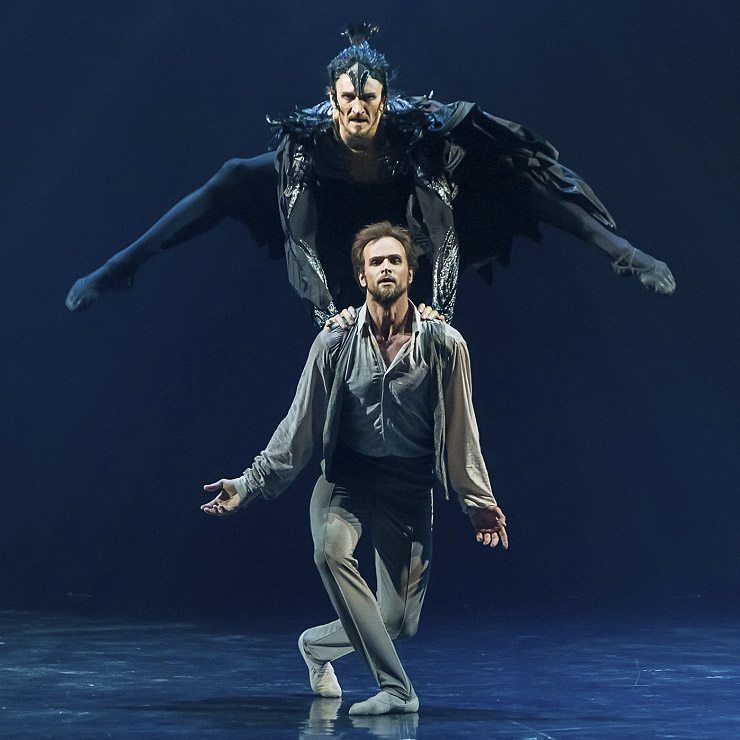- Main page
- Balets Čaikovskis PRO et CONTRA Borisa Eifmana baleta teātris, Sanktpēterburga

Balets Čaikovskis PRO et CONTRA Borisa Eifmana baleta teātris, Sanktpēterburga
TCHAIKOVSKY. PRO ET CONTRA
A ballet by Boris Eifman
Music: Pyotr Tchaikovsky
Sets: Zinovy Margolin
Costumes: Olga Shaishmelashvili, Vyacheslav Okunev
Light: Alexander Sivaev, Boris Eifman
Boris Eifman’s Tchaikovsky. PRO et CONTRA is the result of the choreographer’s years-long contemplation of the great composer’s personality and creative world. The premiere took place in St. Petersburg in the end of May 2016 shortly before the anniversary of Boris Eifman, who celebrated his 70th anniversary on July 22. In November Eifman Ballet soloist Lyubov Andreyeva received the Golden Soffit Award for the role of Antonina Milyukova, Tchaikovsky’s wife. The ballet ensemble of the production was awarded a special prize of the Golden Soffit’s expert board.
Pyotr Tchaikovsky is perhaps Eifman’s most favorite composer. The choreographer created such notable performances as The Idiot (1980), Red Giselle (1997), Anna Karenina (2005) and Eugene Onegin (2009) set to his music. The ballet Tchaikovsky, released in 1993, that toured with a great success all over the world, deserves special attention. Today, Boris Eifman offers a new, original choreographic creation that corresponds to the modern artistic and technological possibilities of the ballet theatre – Tchaikovsky. PRO et CONTRA.
“Having been turning to Tchaikovsky’s music for many years, I realized how deep and bottomless the composer’s world was. I came to understanding of a variety of themes related to his creative life, his psychic identity, relationship with loved ones. All this was not sufficiently studied by me earlier. I wanted to create a work, in which I could delve deeper into the environment of Tchaikovsky’s creative torment,” Eifman resumes.
The choreographic narration of the new production, harmonious with the composer’s music in an emotionally-dramaturgical terms, shows variety and accurately conveys emotional experience of the characters. The ingenuity of the plastic language allowed Boris Eifman to explore insightfully the internal conflict, from which Tchaikovsky suffered painfully and which became a source of unbearable mental suffering and predestined the tragic confessional tone of his music.
